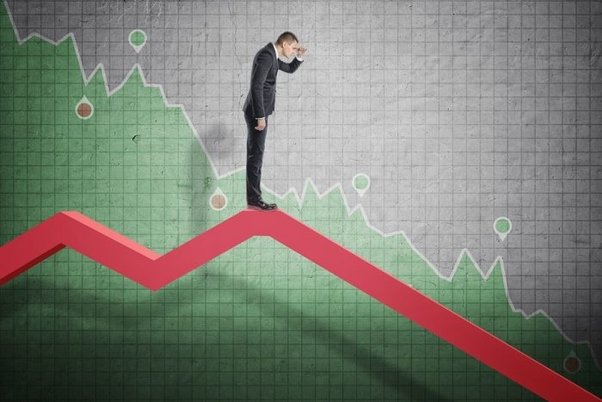
Losing trades happen. They are apart of the journey. There is simply no such thing as a trader or investor who wins all the time. All the famous investors or traders you know have LOST many times in their career. It is perfectly normal. Did you know the famed hedge fund manager Ray Dalio lost everything in his 30s? He went broke. He had to start over from scratch.
This post will address what losing trades really mean and how to deal with it.
Before we begin, let us state the obvious:
– Be careful of people who claim they don’t lose.
– Avoid people who flaunt win rates or success rates that are simply not possible.
– Losing trades happen to everyone! You are not alone.
Now, let’s talk about what bad trades mean and 5 tips for managing them:
Number 1: A losing trade is different from a bad trade
The most experienced traders are well aware of their risk before they ever place a trade. Each losing trade is a small component of a bigger process that relates to a system, plan or strategy that has been thoroughly tested and studied. A losing trade is a calculated event for experienced traders. They defined their risk, position size, stop loss, and profit target.
A bad trade is very different. A bad trade implies someone risked their hard earned money with no plan or process. A bad trade is reckless and indiscriminate trading. This often happens to new investors or traders who do not yet understand the time, studying, and research that goes into making a rock solid plan. Be sure to remember the difference between a calculated losing trade and a bad trade with no plan or process.
There are several ways to get started with a plan, system or process. Paper trading, backtesting and/or working with proficient traders who give valuable feedback are all ways to get started. Don’t risk your money without first doing research.
Number 2: Every losing trade provides data to get better
As we’ve mentioned several times now, losing trades happen to everyone. But remember, losing trades are also filled with insightful information and data. You can learn a lot from analyzing losing trades.
At the end of each trading day, week or month, experienced traders will analyze their losing trades in detail. What patterns are appearing? What do they share in common? Why did they happen? With this information, a trader or investor can adjust their strategy based on what they’ve uncovered.
Number 3: Do not let losing trades impact your health
Your mental and physical health are just as important as your financial health. Do not let losing trades impact either of those.
If your system is breaking down or several losing trades are starting to impact your emotions, step away from the computer or phone. Turn everything off and walk away. The markets have been open for hundreds of years and are not going away. When you’re ready to come back, they’ll be there.
Get up, get some fresh air, and get back in the arena when you’re ready.
Number 4: Share your experiences with others
Traders and investors across the globe want to learn from your stories and losing trades. These are invaluable experiences that we all share in common. Social networks allow you to chat, share, and meet people who are going through similar things. We can all learn from each other.
Sure, the temptation to share your winners or act like the best trader who ever existed is tempting – but it’s clear we learn together and get better when we share lessons from the loses. This is where the deepest insights are found, and together, it’s where we can grow as a community of traders all trying to outperform the market.
Share and ask for constructive feedback!
Number 5: Keep Going
Markets are a game of learning, relearning, and progressing forward. New themes, trends, and stories appear and disappear daily. The journey is long and it never stops. When implementing your trading plan or investing plan, it’s important to do it with the long-term in mind. One or two losing trades in a single day or week is a small fraction of what’s to come many months and years down the road.
Keep going. Keep building. Keep refining your plan. Study the data.
We hope you enjoyed this post!
We hope you learned something new or informative!
Please leave any comments below and our team will read them.